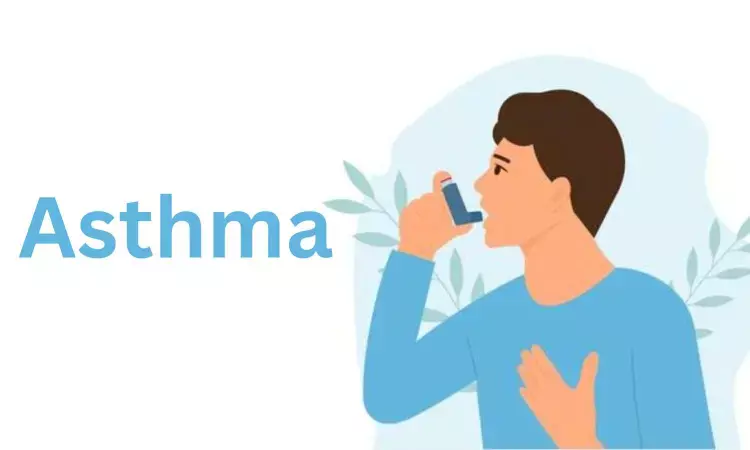- Home
- Medical news & Guidelines
- Anesthesiology
- Cardiology and CTVS
- Critical Care
- Dentistry
- Dermatology
- Diabetes and Endocrinology
- ENT
- Gastroenterology
- Medicine
- Nephrology
- Neurology
- Obstretics-Gynaecology
- Oncology
- Ophthalmology
- Orthopaedics
- Pediatrics-Neonatology
- Psychiatry
- Pulmonology
- Radiology
- Surgery
- Urology
- Laboratory Medicine
- Diet
- Nursing
- Paramedical
- Physiotherapy
- Health news
- Fact Check
- Bone Health Fact Check
- Brain Health Fact Check
- Cancer Related Fact Check
- Child Care Fact Check
- Dental and oral health fact check
- Diabetes and metabolic health fact check
- Diet and Nutrition Fact Check
- Eye and ENT Care Fact Check
- Fitness fact check
- Gut health fact check
- Heart health fact check
- Kidney health fact check
- Medical education fact check
- Men's health fact check
- Respiratory fact check
- Skin and hair care fact check
- Vaccine and Immunization fact check
- Women's health fact check
- AYUSH
- State News
- Andaman and Nicobar Islands
- Andhra Pradesh
- Arunachal Pradesh
- Assam
- Bihar
- Chandigarh
- Chattisgarh
- Dadra and Nagar Haveli
- Daman and Diu
- Delhi
- Goa
- Gujarat
- Haryana
- Himachal Pradesh
- Jammu & Kashmir
- Jharkhand
- Karnataka
- Kerala
- Ladakh
- Lakshadweep
- Madhya Pradesh
- Maharashtra
- Manipur
- Meghalaya
- Mizoram
- Nagaland
- Odisha
- Puducherry
- Punjab
- Rajasthan
- Sikkim
- Tamil Nadu
- Telangana
- Tripura
- Uttar Pradesh
- Uttrakhand
- West Bengal
- Medical Education
- Industry
Tezepelumab Shows Promise in Treating Severe Asthma with or without Nasal Polyps

A recent study published in Journal Of Asthma And Allergy by LaidLaw T M and colleagues highlights the potential of tezepelumab, a human monoclonal antibody that blocks thymic stromal lymphopoietin, in the treatment of severe asthma, with or without nasal polyps (NPs). The phase 3 NAVIGATOR study (NCT03347279) revealed that tezepelumab reduced annualized asthma exacerbation rates (AAERs) compared to a placebo, regardless of baseline disease characteristics. Moreover, the treatment improved lung function, symptom control, and health-related quality of life (HRQoL) in adults and adolescents with severe, uncontrolled asthma.
Key findings from the study:
● Reduction in AAER: Tezepelumab led to an 85% reduction in AAER over 52 weeks versus placebo in patients with nasal polyps and a 51% reduction in patients without nasal polyps.
● Improved Lung Function: Tezepelumab demonstrated improvements in lung function, asthma control, and HRQoL at week 52 compared to placebo in both patient groups.
● Sino-Nasal Symptoms: In patients with nasal polyps, tezepelumab significantly reduced Sino-Nasal Outcome Test (SNOT)-22 total scores by 28 weeks (–12.57 points) and 52 weeks (–10.58 points) compared to placebo.
● Biological Markers: Tezepelumab resulted in reduced blood eosinophil counts, fractional exhaled nitric oxide (FeNO), immunoglobulin E (IgE), eosinophil-derived neurotoxin (EDN), matrix metalloproteinase-10 (MMP-10), and serum interleukin (IL)-5, IL-6, IL-8, and IL-13 levels at week 52, irrespective of nasal polyp status.
These findings suggest that tezepelumab offers clinically meaningful improvements in both sino-nasal symptoms and asthma outcomes among patients with severe asthma, whether they have nasal polyps or not.
The study underscores the potential of tezepelumab as a valuable treatment option for individuals struggling with severe asthma, offering hope for improved symptom control and a better quality of life. Further research and clinical trials may provide additional insights into the long-term benefits of tezepelumab for patients with severe asthma and comorbid conditions like nasal polyps.
Reference:
Laidlaw, T. M., Menzies-Gow, A., Caveney, S., Han, J. K., Martin, N., Israel, E., Lee, J. K., Llanos, J.-P., Martin, N., Megally, A., Parikh, B., Vong, S., Welte, T., & Corren, J. (2023). Tezepelumab efficacy in patients with severe, uncontrolled asthma with comorbid nasal polyps in NAVIGATOR. Journal of Asthma and Allergy, 16, 915–932. https://doi.org/10.2147/jaa.s413064
Dr Kamal Kant Kohli-MBBS, DTCD- a chest specialist with more than 30 years of practice and a flair for writing clinical articles, Dr Kamal Kant Kohli joined Medical Dialogues as a Chief Editor of Medical News. Besides writing articles, as an editor, he proofreads and verifies all the medical content published on Medical Dialogues including those coming from journals, studies,medical conferences,guidelines etc. Email: drkohli@medicaldialogues.in. Contact no. 011-43720751


